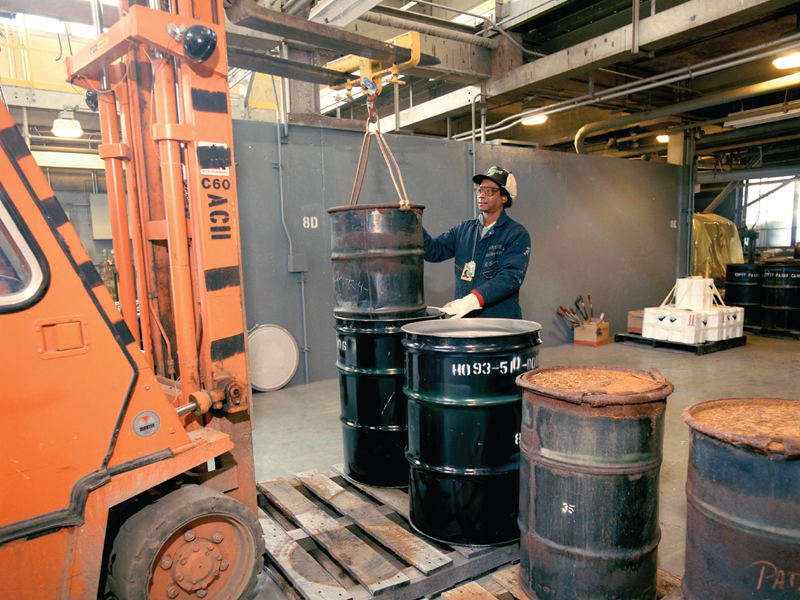
When you own a business, preparing for wet and cold weather is important to prevent damage and environmental hazards. When you have hazardous materials outside, you need to decide whether to recycle, dispose of, or move the waste into a secure weatherproof building. Here are a few things to think about as you prepare for the upcoming winter weather.
Decide what to do with your waste
Assess outdoor stockpiles of scrap materials, equipment, vehicles, and chemicals (such as oils, lubricants, solvents, cleaning supplies, and paint). To decide what to do with your dangerous waste, ask yourself these questions:
- Is the item still usable? If so, can it be sold or given away through material exchanges such as IMEX or craigslist?
- Has the item expired? Do you no longer use the specific version or formulation of the item? Is the item broken or unusable?
- Can the item be recycled? For example, through a recycling program, a county-based small business program, or a waste broker or hauler?
Find a recycling or drop-off site
- Paint: Find a PaintCare drop-off site
- Electronic waste: E-Cycle Washington
- Mercury-containing lamps: Recycle lights for free | LightRecycle Washington
- Dangerous waste haulers and used oil recycling facility search: Waste service providers
- Moderate risk waste (small quantity generators only) and household hazardous waste drop-off locations: Find a disposal site
Move waste inside if possible
Consider reducing your overstock and the items in your boneyard to limit your liability. Keep the following in mind:
- Exposure to heat and sunlight can degrade materials, resulting in weakened or leaking containers, ruined inventory, and peeling paint.
- Strong winds, wet snow, and ice can damage temporary structures and blow over partially full containers.
- Cold temperatures can cause liquid waste to freeze, potentially cracking or bursting containers.
- Heavy rains can mobilize spills and drips of chemicals in the yard, which carries them into your stormwater drainage system, nearby creeks and wetlands, or dry wells.
- Rain can accumulate inside open containers, solubilize dried materials, and create contaminated water that must be designated and disposed of properly. If stored outside, put empty drums on their side with bungs securely closed; if stored upright, rainwater can infiltrate a loose bung.
We can answer your questions
If you’re still not sure what to do with your waste, we can help.
- Contact our Pollution Prevention Assistance program, a partnership made up of city, county, and state staff. This program assists small quantity generators and businesses who aren’t sure what generator category they belong in.
- Medium and large quantity generators: Contact our Pollution Prevention Technical Assistance team, consisting of dedicated staff and engineers.

